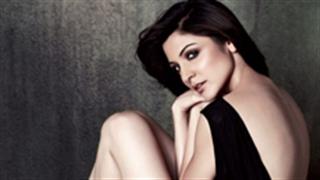Relatable to women
"The decisions that you make in your career stem out from the experiences you have early on in your career. I feel that in spite of having a big launch with RNBDJ and the film doing well for me in terms of getting appreciation, I don't think it made me the next big thing. The movie that got me that kind of recognition was Band Baaja Baaraat (2010)," says Anushka, adding that once a content-driven film becomes successful, "you realise that that's the kind of work you have to look out for".
The Dil Dhadakne Do (2015) actor maintains that she has always been driven by content, and looks for scripts "that have something new to say and have a different role" for her. "I haven't done many films. But with every movie, I try to showcase a different side of me through a character. These roles have been relatable to today's women. But you don't plan to be part of two Rs 300 crore films, working with the three Khans - Shah Rukh, Salman and Aamir - or working with the best directors, who I have been fortunate to collaborate with. You go after one thing, and the others just happen," she says.
Content first
Besides multi-crore grossing projects, Anushka has also been at the forefront of women-oriented movies, including producing and acting in NH10 (2015). She says women-centric movies are making a mark in India because of their "stories". "It's about how well the films have been received and loved by audiences, which is directly connected to the storyline and the content," she says.
Anushka feels that "women are taking risks with films". She backed a movie such as NH10 because she felt that it was a story that needed to be told. "It wasn't the most obvious choice for a film (as an actor), let alone producing it. But, despite being an adult film, it did well. Similarly, a film like Tanu Weds Manu Returns (2015) has done well too. It's always due to the content," she says.

Anushka says, as an actor, she has always "wanted to stay away" from films that were categorised as men- or women-oriented. "I feel films are films. The day we stop calling them women-oriented films will be the time we will have an industry in which we watch films and stories for what they are, and not because of the gender of the protagonist," she says, adding that this change is "happening slowly", as writers are creating great content these days.
"Directors are also backing such movies (which aren't called either women- or men-centric films). They are realising the potential and viability [of such movies]. Such projects have done well because they have been good films. Ultimately, good films will do well; that's the bottom line. While no one can deny the star power of Aamir and Salman, PK and Sultan have done such business also because of their content and because their subjects were different. What stays with the audience is what the film is, its storyline and its uniqueness," she says.
The actor adds that it is a "big and happy moment" to have her work appreciated in these two films. "It's a great feeling. My work has reached a wider audience due to the stardom of Salman and Aamir. That's something I will always be grateful for," she says.



















